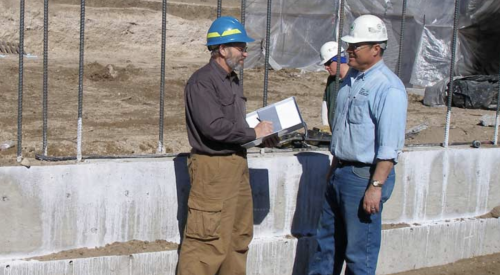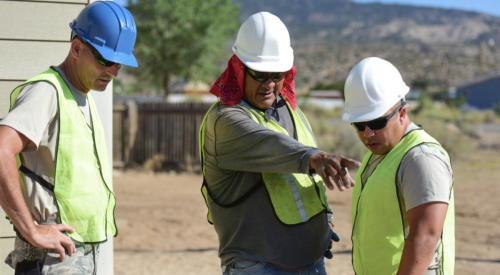See The Stars
| Bob Cartledge | Bill Davis | Dave Goudie |
| Orestes Hernandez | Tim King | Don Lytton |
| John Matthews | Ed Pettigrew | John Sias |
| D.R. Stembers | Kevin Treloar | Howard ‘Rusty’ Wolf |
Superintendent, construction manager or simply builder: By any name, these construction professionals sit squarely at the intersection of cost, quality, customer satisfaction and ultimately a builder’s good name.
But turnover among those in this critically important role is high industrywide. Many find it difficult to keep up with the stresses and demands of the job. Others are so impressive that they quickly gain promotion and more responsibility.
“The great superintendents don’t last long,” says Randy Luther, vice president of construction for Centex Homes. Open management slots higher in the organization keep them moving up, he says. That explains why there is such a premium on those high performers who continually excel at direct oversight of home construction.
So what makes a great superintendent?
Long-term customer satisfaction is key, says Gary Grant, vice president of construction for Pulte Homes Minnesota, who has 30 years of construction management experience. Grant says long-term satisfaction is the byproduct of three supervisory attributes.
“First, superintendents have to have high integrity. Their word has to be their bond,” says Grant. “Second are strong interpersonal skills. They have to like people. And third, they have to be a great schedulers and planners with an ability to roll with the punches when circumstances take over. A good supe manages a job instead of the other way around.”
Atlanta-based Organizational Development Associates breaks down the criteria of superintendent success even further, into several qualitative and quantitative benchmarks. The diversity of tasks and balances involved is striking: job-site appearance, customer relations, trade management, planning, problem-solving ability, safety, organization, administrative tasks, leadership, construction knowledge, security, internal relations and scheduling.
These attributes are quantified by customers’ willingness to recommend, average homes carried per quarter, days ahead of or behind schedule, number of homes delivered, value of homes delivered, hard-cost variance, number of improvement recommendations, number of items on first inspection and average days to correct punchlist items.
The 12 super supes on the following pages epitomize the best attributes of the people who carry out this critical role in the home building industry. All of them scored very high on each of Organizational Development’s attributes, and their performances are consistently strong.
We found them through a nomination process involving a number of construction consultants around the country, including Martin Freedland of Organizational Development and Scott Sedam of TrueNorth Development Inc. in Northville, Mich. Particularly helpful was Glenn Burgess of Burgess Construction Consultants in Dallas. While doing 42,000 quality assurance walk-throughs during the first half of this year in seven markets, his team graded hundreds of superintendents at 300 home building companies on overall quality. His firm suggested names in each of those markets. The final 12 were chosen from a list of 50 nominees.












